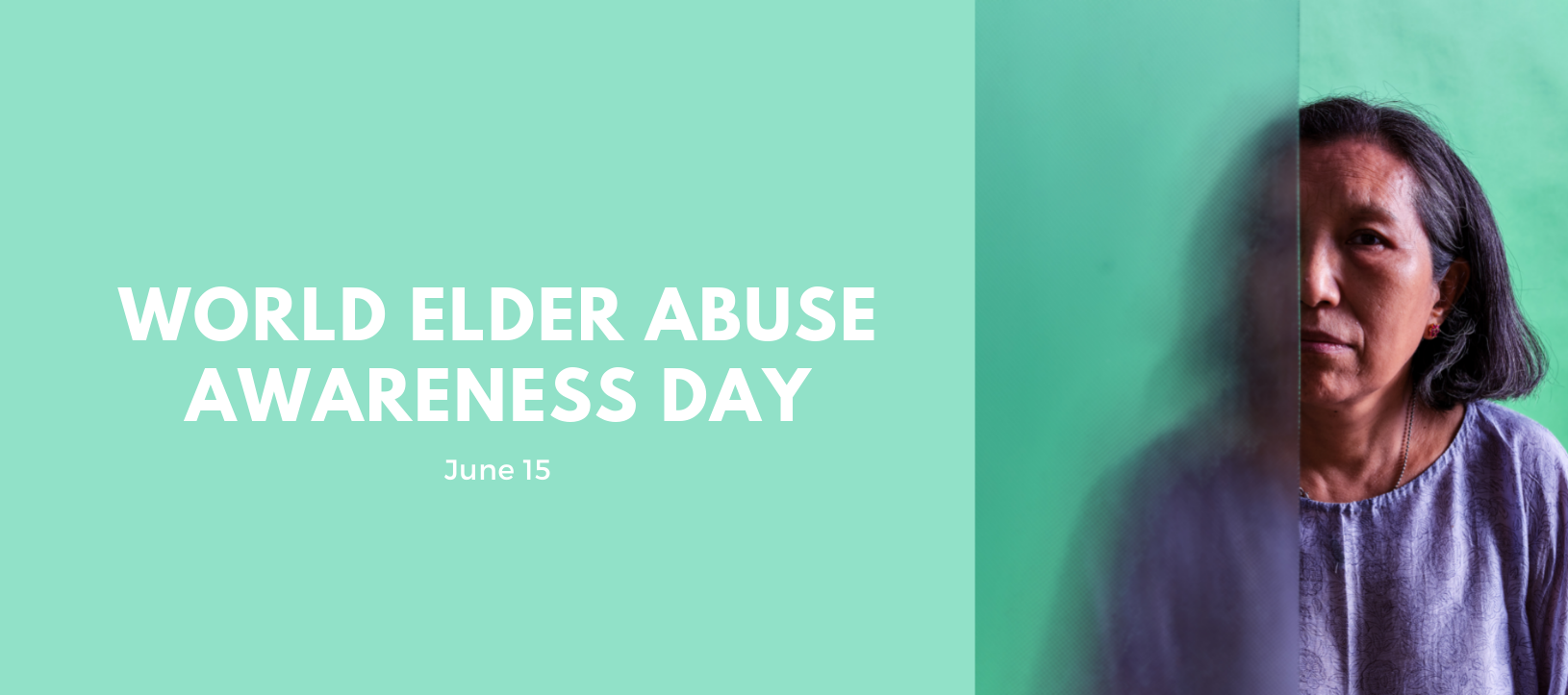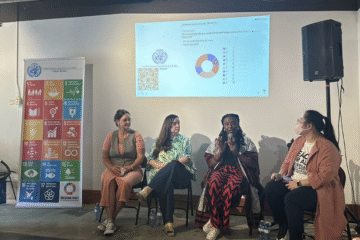
Healthy Ageing in Post-Ageist 2022 and Beyond
By: Angelina Patoka
It is with a heavy heart that today we commemorate the World Elder Abuse Awareness Day. Unfortunately, this continues to be an underreported widespread issue worldwide and numerous findings suggest it could get worse. Elder abuse is most commonly classified as the abuse of persons who are above the age of sixty-five. Elderly abuse could be financial, emotional, physical, sexual and so forth. It extends to macro-levels of abuse as well, with systemic abuses including seemingly-objective regulations, policies, and sometimes commonplace social practices based on stereotypes that disservice and discriminate against persons within this demographic.
Canadian seniors’ concerns reflect global findings as the government reports that the greatest risks to seniors are financial crimes by strangers, crime and abuse by relatives and caregivers, and crime and abuse in institutional settings such as nursing homes. In addition, Canadian seniors are less likely to report being victims of crime and abuse and they become more reclusive in response to crimes as opposed to younger populations.
Despite a growing awareness on elder abuse, the global situation seems rather bleak at the moment. Being more forthcoming with reports of abuse is a positive, but it is dire due to the scope thereof.
Contrary to some common beliefs (and in all fairness some older studies) what we conceptualize as an ageing ‘crisis’ is not limited to the Western world. For the first time in the world’s history, demographic trends show that by the end of the decade the number of individuals over sixty will rise to 1.4 billion and outnumber persons listed as eighteen and younger. In fact, the World Health Organization (WHO) expected people over sixty to outnumber those under five as early as 2020.
This demographic shift is the result of multivariate factors which won’t be discussed in-depth in this post. Instead, I will optimistically argue that the socioeconomic panic over an ageing global population is not completely justified and changing our position on ageing will mitigate elder abuse (among other things).
I will begin my campaign by pointing to some facts. First, despite the pandemic the global longevity rate continues to rise. Secondly, despite global inequalities in healthcare, humans in the sixty-plus category (and humans in general) are the healthiest they’ve ever been. Even in comparison to a decade ago. Lastly, longer and healthier lives mean a better quality of life that enables older persons to engage in more activities and in some cases have longer careers. This includes career politicians, which is a field that ironically has the opposite problem with ageism as younger persons are oftentimes discriminated against with higher age eligibility. Better and longer lives are reflected in academic institutions as well. Professors tend to tenure for longer and interestingly there is a steadily rising rate of mature students above fifty who enroll in universities in defiance of the oft-quoted and frankly false and derogatory saying that an old dog cannot learn new tricks.
Despite the information the information above the status quo remains: the global culture of ageism continues to hold us all hostage. It compels us to prioritize any means that would lessen the burdens an ageing population imposes on the labour force, the healthcare system, and fiscal policy. Institutions are constantly looking for ways to solve those problems by relying on outdated stereotypes and fleshing out policies that enable abuse rather than mitigate it. Even non-Western countries where there are strong traditional values that centre around the reverence of their elders experience such institutional pressures, as the smaller younger populations struggle to meet the demands of their cultures in face of a globalized, neoliberal world. I believe that this is one of the main catalysts that perpetuate a vicious cycle that enables elder abuse.
Governments have valid reasons for prioritizing youth over seniors for posterity, though it is a bit odd given the average ages of career politicians within and outside Canada. Most studies find that politicians are typically in their early fifties, yet they tend to enact policies that do not benefit their age group. This doublethink leads to a disturbing deduction that prompts an ethical dilemma. One that could be reduced to a single question: why are governments treating older persons as though they are less human than youth?
But what options do we have? Plenty, as it turns out. There are plenty of resources that aid elders. This includes volunteering opportunities and resources to report and combat elder abuse. I believe it is commendable, but the issue is deeper. We ought to reinvent the culture of ageing. Again.
Several decades ago a person in their forties was considered old, though as the saying goes forty is the new thirty. Is it possible that we are approaching a new era where sixty will be the new forty? An era of autonomy among an ageing populace that is liberated of discrmination and stereotypes?
The United Nations declared 2021-2030 as the Decade of Healthy Ageing in alignment with the Sustainable Development Goals. This global collaboration aims to connect governments, civil societies, international agencies and organisations, the private sector, and the media, to ameliorate the lives of older people, their families, and their communities. The primary objective of the Decade of Healthy Ageing is to “ensure that older people can fulfil their potential in dignity and equality and in a healthy environment.” (World Health Organization 2020)
WHO declared four areas for action: age-friendly environments, combating ageism, integrated care for older people (ICOPE), and long-term care. Age-friendly environments would capitalise on diverse and dynamic physical and social environments to bolster the health, well-being and autonomy of older persons. This intersects with other UNSDGs such as Goal 11 (Sustainable Cities and Communities) and would necessitate investments in intergenerational spaces or enable greater urban mobility. Combating ageism would work on dismantling social stigmas surrounding ageing, which includes some of the issues discussed earlier in the post such as the exaggerated mainstream narrative that older persons are generally inept and burdensome.
ICOPE aims at introducing a person-centric care that requires the reinvention of social services and healthcare by introducing societal accommodations to promote healthy ageing. While long-term care promotes adequate care systems for individuals who experience a significant decline in capacity to live out their lives in a manner that is “consistent with their basic rights, fundamental freedoms and human dignity.” (WHO 2020)
These goals are not far-fetched for a highly-developed country like Canada. It is a necessary contingency plan. Unless we have plans to evolve into a technocratic utopia (or a corporate dystopia?) and become cyborgs.
Ageing is not a disease, but the negative societal perceptions on ageing does give an inkling of a festering social plague. One that ought to be eradicated through the promotion of healthy ageing.
To report elder abuse in Canada:
- Canadian Network for the Prevention of Elder Abuse – CNPEA (national)
- Kerby Centre (Calgary)
- Core Alberta (Calgary)
- Alberta government (provincial sources)
Volunteering opportunities:
- Calgary seniors (Calgary)
- Volunteer connector (Calgary)
- Senior services society (national)
Are you an older person who would like to share their knowledge? Check out these links on The Platform of the Decade of Healthy Ageing:
- Stories to Hear and Tell
- Practical Support for Impact
- Connect with the Global Community
- Resources to Discover and Learn From
——————-
Article sources
- https://www.un.org/development/desa/ageing/world-elder-abuse-awareness-day.html
- https://www.un.org/en/observances/elder-abuse-awareness-day
- https://www.decadeofhealthyageing.org
- https://www.who.int/initiatives/decade-of-healthy-ageing
- https://www.un.org/development/desa/ageing/issues.html#
- https://www.who.int/data/gho/data/themes/mortality-and-global-health-estimates/ghe-
- life-expectancy-and-healthy-life-expectancy
- https://www.who.int/news-room/fact-sheets/detail/ageing-and-health
- https://www.justice.gc.ca/eng/rp-pr/cj-jp/fv-vf/crim/sum-som.html


